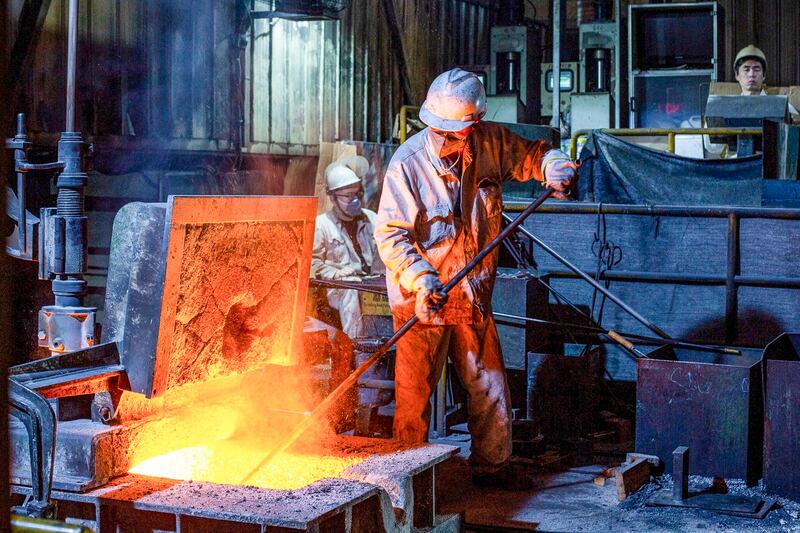A bipartisan group of U.S. lawmakers led by Sen. Marco Rubio has written to the financial index provider MSCI to question why it withdrew a “red flag” warning for Volkswagen stock over claims the automaker used forced Uyghur labor in China’s Xinjiang region.
MSCI marked the German multinational corporation with a red flag in November 2022 due to the claims of forced labor in a Xinjiang factory it co-owns with Chinese state-owned carmaker SAIC Motor, prompting some investors to divest in the stock until an audit was completed.
But MSCI reversed that decision in December after a controversial audit of the factory carried out by a German human rights consulting firm that found no evidence of forced Uyghur labor – but which was later publicly disavowed by staffers at the consulting firm.
The disavowals came as American lawmakers and experts on forced Uyghur labor – which China's government denies is occuring – question the credibility of such audits in Xinjiang given the close supervision of auditors and advance notice required by local authorities.

In a letter sent on Friday to MSCI, Rubio, a Republican senator from Florida, and three other lawmakers questioned the credibility of the audit, asking the index provider what methodology it used in deciding to lift the red-flag listing and whether it contacted Volkswagen.
“Will a ‘red flag’ rating be re-imposed on Volkswagen, given the concerns over the audit [and] reports of Volkswagen’s involvement in forced labor?” it says. “What interactions has MSCI had with Volkswagen since 2022 with respect to the ‘red flag’ rating?”
The letter also asks if the red-flag listing will be reimposed given a recent report released by the Senate Finance Committee that found that Volkswagen admitted to illegally importing vehicles into the United States that had components made using forced Uyghur labor.
Besides Rubio, the letter is also signed by Sen. Chris Coons, a Democrat from Delaware, and Rep. John Moolenar and Rep. Raja Krishnamoorthi, the heads of the Republican and Democratic parties on the House Select Committee on the Chinese Community Party.
Questionable audit
In response to the MSCI “red flag” listing in 2022, Volkswagen commissioned Löning Human Rights and Responsible Business GmbH, a German consulting firm, to audit its factory in Xinjiang.
In a Dec. 5 statement, the firm said it had found no evidence of forced labor after an inspection of the co-owned factory and evaluations of salary payments and contracts for almost 200 staff members.
However, six employees of the consulting firm took to LinkedIn to publicly disavow the statement. They said only company CEO, Markus Lӧning, head of strategy Christian Ewert and two Chinese lawyers had been allowed to visit the Volkswagen factory to inspect its practices.

A second company statement, which the U.S. lawmakers described as "highly unusual" and had apparently been forced by the upset staff members, clarified that "no other team member" besides Lӧning and Ewert had "participated in, supported or backed" the audit.
The audit was also slammed by the World Uyghur Congress, which said "a credible, independent audit is simply not possible" in Xinjiang given the harsh suppression of the Muslim ethnic minority there.
“Everyone there knows that a wrong word can have life-threatening consequences for themselves or their families,” the group said.
In a comment on LinkedIn, the CEO clarified that he “stands by” his findings after the factory investigation, and described his consulting firm as a “lively and committed team with a spectrum of views.”
In any case, the audit was enough for MSCI, which on Dec. 12 downgraded Volkswagen from a “red flag” to an “orange flag” listing, which indicates that the concerns were “partially resolved.”
MSCI did not respond to a request for comment.
Rubio told Radio Free Asia that Volkswagen was just “one example” of companies with alleged ties to forced labor and said financial firms that fund the practice would not be spared congressional oversight.
“I remain committed to vigorously conducting oversight over any and all companies involved in this modern-day slavery practice, including financial institutions that support complicit companies,” Rubio said.
Edited by Malcolm Foster.

